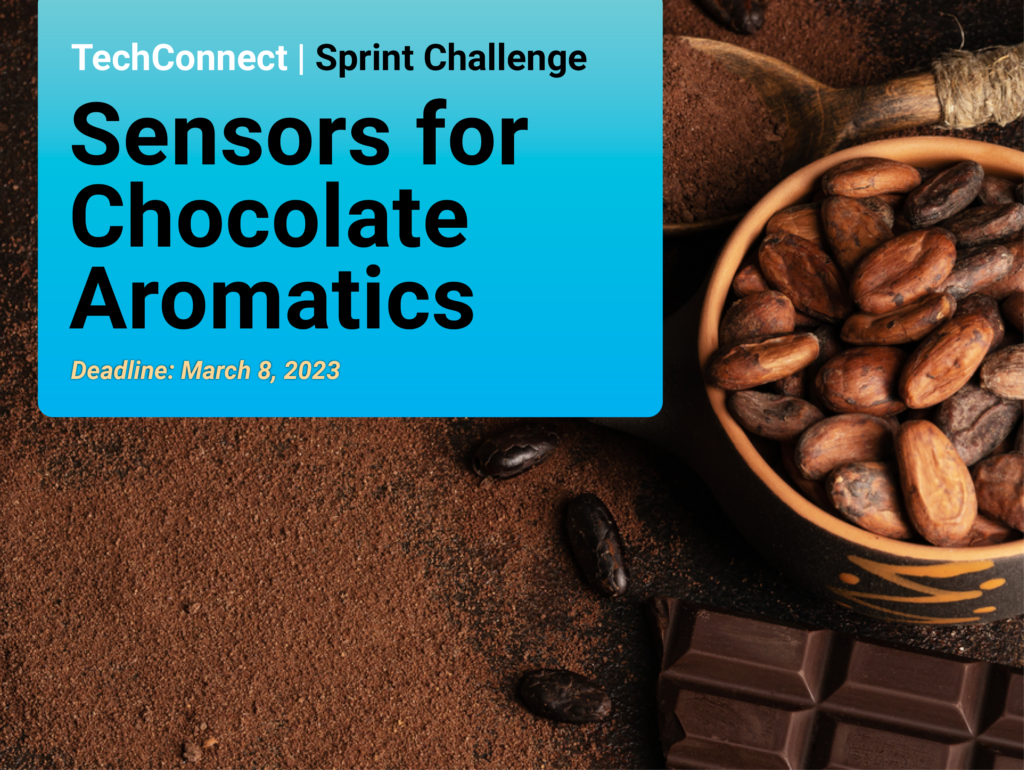
Due: March 8, 2023
When you eat, your perceptions of that food are determined by a complex interplay between sense receptors and the multitudes of compounds in the food itself. In particular, aroma-active volatiles in food directly impact your enjoyment of that item and provide valuable clues to a variety of factors about it, including age, ingredients and quality.
The client, Mondelēz International, is a global confectionary and snack company that uses chocolate in many forms across numerous brands. To provide a new avenue for quality control efforts as well as insights for the development of new products, Mondelēz wants innovative technologies for the measurement of volatile, aroma-active chemicals from milk chocolate.
Currently, Mondelēz utilizes gas chromatographic mass spectrometry (GC/MS) systems to analyze chocolate samples. The GC/MS is used to quantify a wide range of target compounds, approximately fifty in all, including pyrazines, lactones, short chain aldehydes, esters and acids, and small phenolics. This approach, while effective, is highly time consuming, taking approximately 6 hours to complete a single evaluation from start to finish.
The goal of this project is to identify alternative technologies to conventional GC/MS approaches. Mondelēz is interested in approaches that can deliver the following performance:
- Detection and accurate quantification of various aroma-active volatiles present in milk chocolate
- Increased evaluation throughput:
- Minimum 10 samples per day (duplicate analysis)
- Ideally ~30 samples per day (duplicate analysis)
- High repeatability of quantification results: low (<20%) relative standard deviation
- Suitable for usage with:
- Molecular masses between 50 and 200 Da
- Concentrations between ~1µg/kg and ~200mg/kg
Ideally, proposed approaches will meet or exceed all the performance described above, however technologies which provide incremental or partial improvements will also be considered. Approaches which reduce sample preparation or processing time are of interest as are innovations which improve analysis of detected compounds.
Mondelēz intends to deploy new systems globally beginning in early 2024. Consequently, technologies closer to commercial viability are strongly preferred. Early stage technologies, including ones originating from academic labs, will still be considered, provided a viable pathway to commercial implementation exists.
The goal of this sprint is to facilitate contact and interactions between the Sprint sponsor and commercial entities (including Start-ups) or technology developers or research organization/university in this space. Submissions from all viable subject matter experts are of interest including those from academia and commercial entities.
